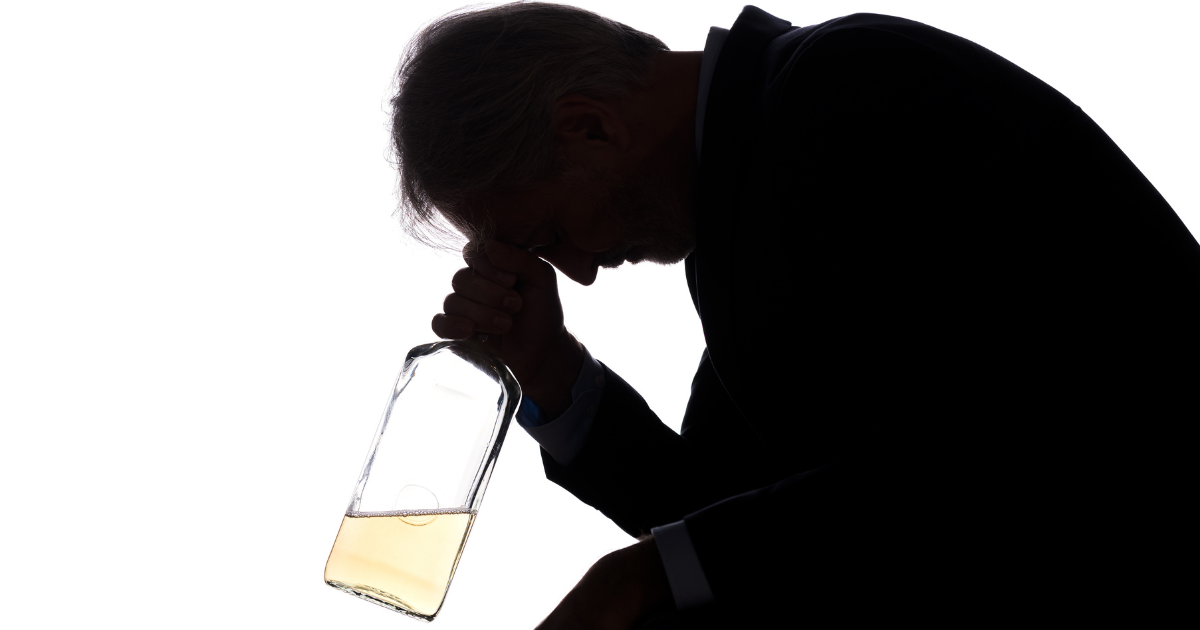Published: May 1, 2023, at 7:30 a.m. | Updated: May 22, 2023, at 4:05 p.m.
Millions of people around the world enjoy drinking alcohol as a way to relax and unwind. What they may not realize, however, is that alcohol can have a significant impact on mental health, specifically when it comes to anxiety. According to the Alcohol Health and Research World, alcohol can worsen anxiety symptoms and increase the likelihood of developing other disorders.
In this blog post, we’ll explore the connection between alcohol and anxiety, answer common questions about this topic, and share relevant statistics. We’ll also discuss why alcohol can give you anxiety and how it affects anxiety symptoms. By the end of this blog post, you’ll have a better understanding of the complex relationship between substance abuse and mental health.
Does Alcohol Cause Anxiety?
While alcohol may temporarily reduce feelings of anxiety, it can ultimately lead to increased anxiety symptoms. That’s because alcohol changes brain chemistry and can interfere with neurotransmitters responsible for mood regulation. Over time, excessive drinking can lead to chemical imbalances and increase the likelihood of developing an anxiety disorder.
Research supports this connection between alcohol and anxiety. According to the National Institute on Alcohol Abuse and Alcoholism (NIAAA), about one-fifth of patients with social anxiety disorder (SAD) also suffer from an alcohol use disorder (SUD).
What is Anxiety?
Anxiety is a feeling of fear or apprehension about a situation, event, or experience. It’s a natural response to stress but can become overwhelming and interfere with daily life. There are several types of anxiety disorders, including:
- Generalized anxiety disorder (GAD)
- Social anxiety disorder (SAD)
- Panic disorder
- Post-traumatic stress disorder (PTSD)
According to the American Psychiatric Association (APA), about 30% of adults in the United States suffer from anxiety disorders, which can be triggered by various situations or events such as:
- Public speaking
- Taking exams
- Experiencing a traumatic event
When anxiety becomes severe or chronic, it can interfere with a person’s ability to perform daily activities, like:
- Going to work or school
- Maintaining social relationships
Anxiety Symptoms
Some of the most common mental and physical symptoms of anxiety include:
- Excessive worry
- Restlessness
- Irritability
- Difficulty sleeping
- Fatigue
- Muscle tension
How Can People Cope With Anxiety Without Alcohol?
If you struggle with anxiety, there are many non-alcoholic coping mechanisms you can try. These include:
- Deep breathing exercises
- Meditation
- Yoga
- Regular exercise
- Spending time in nature
- Talking to a trusted friend or therapist
Seeking professional help for anxiety is also a great option. If you choose the professional route, there are several options, including:
- Behavioral therapy
- Counseling
- Inpatient treatment
- Outpatient treatment
- Medication
The benefits of addiction recovery on anxiety are significant. By quitting alcohol, you may experience reduced symptoms, improved mood, better sleep and a better quality of life.
Break Free From Anxiety and Alcohol Today
Drinking may feel like it’s helping with anxiety, but it can actually make things worse. This is because alcohol affects how the brain works and can make anxiety symptoms worse. It can even increase the chances of developing a long-term anxiety disorder.
Therefore, knowing more about how alcohol and anxiety are related can help you make smarter choices about your mental health. Making the decision to seek help for alcohol addiction or co-occurring mental health disorders can be difficult, but it’s important to remember that you don’t have to face these challenges alone.
Choose Recovery Over Alcohol Addiction & Anxiety
If you or someone you love is struggling, take the first step towards recovery today by calling the dedicated admissions team at Landmark Recovery at 888-448-0302. Our integrated, personalized treatment programs are designed to equip you with the tools and confidence you need to choose recovery over addiction. Our experts are committed to providing compassionate, evidence-based care every step of the way.

Choose Recovery Over Addiction
We're here 24/7 to help you get the care you need to live life on your terms, without drugs or alcohol. Talk to our recovery specialists today and learn about our integrated treatment programs.




